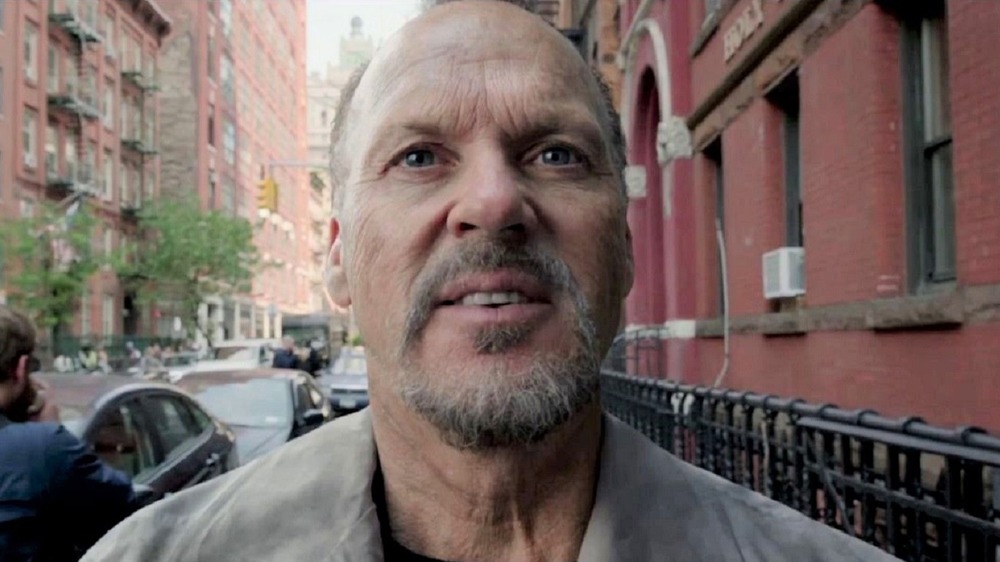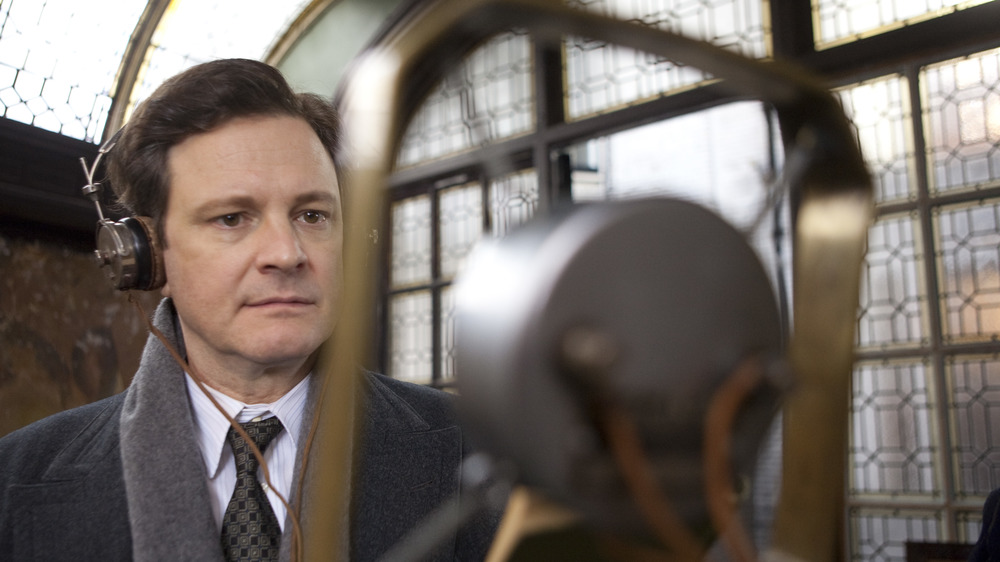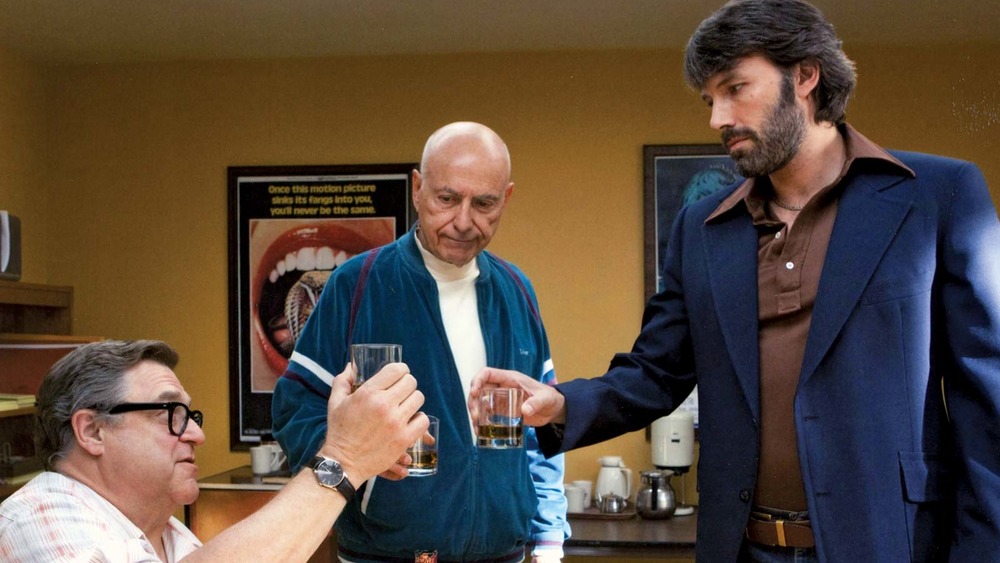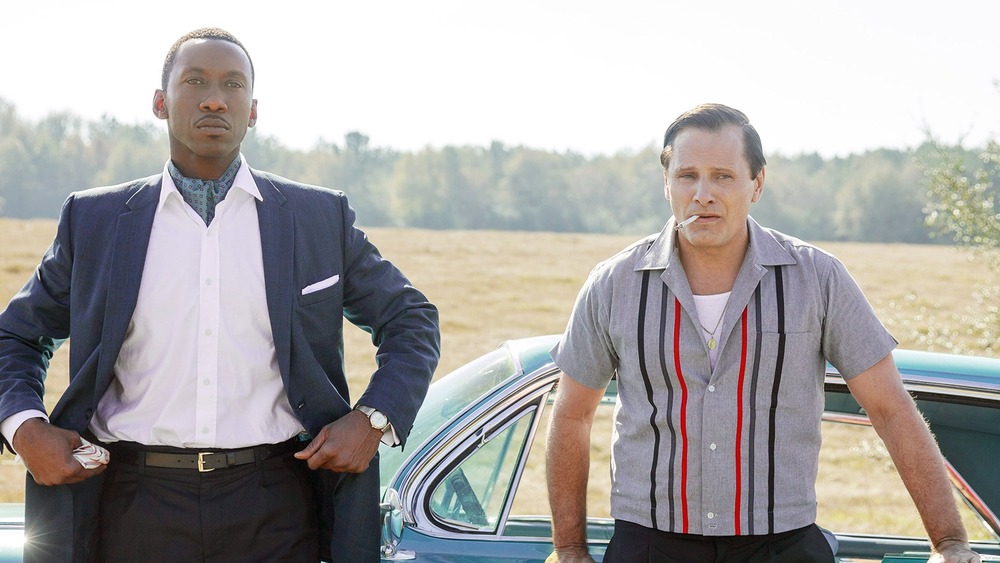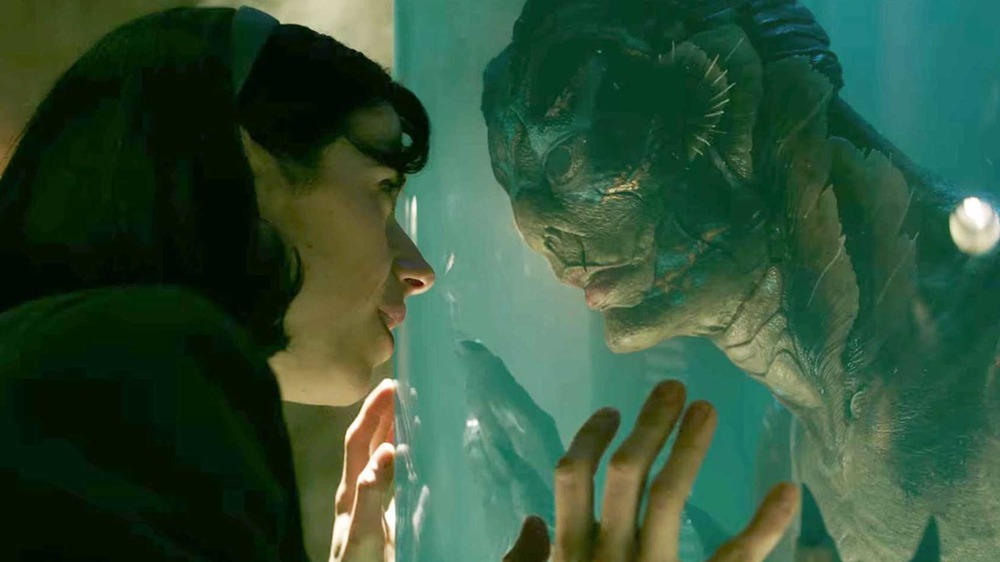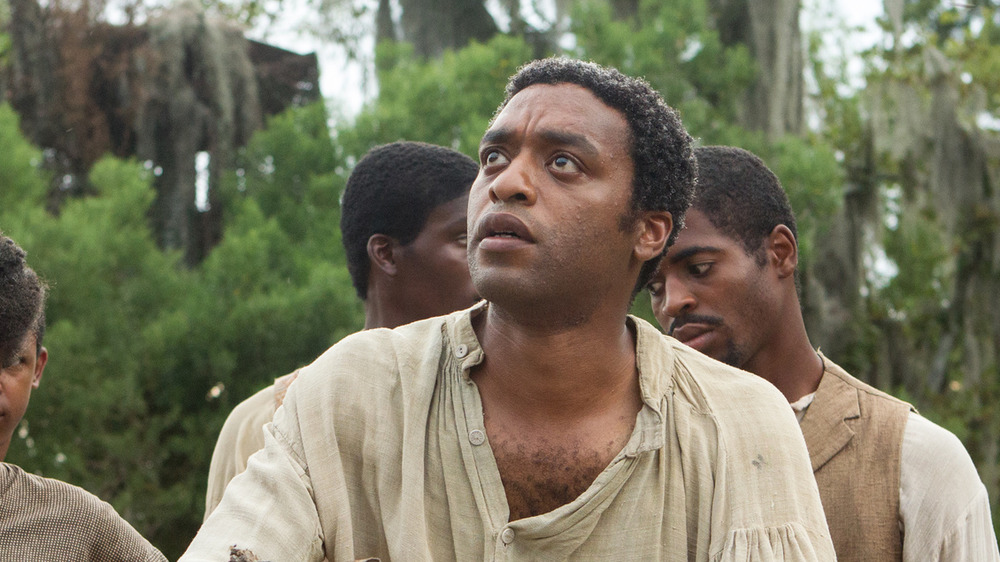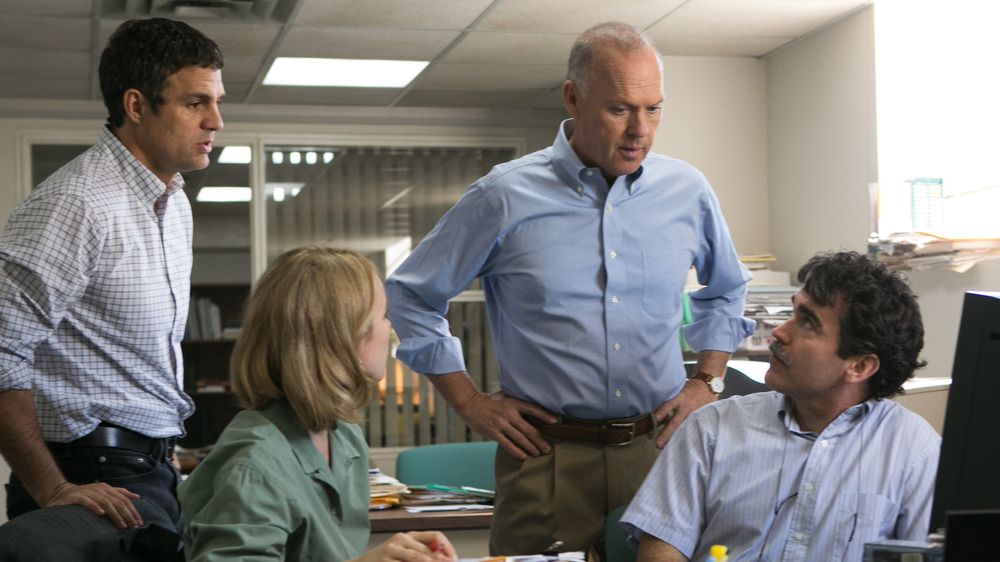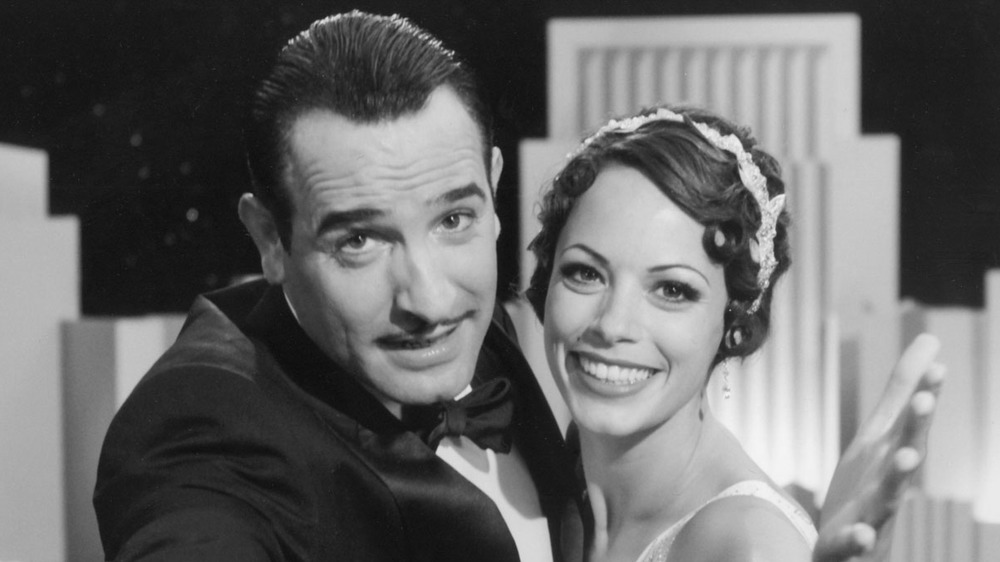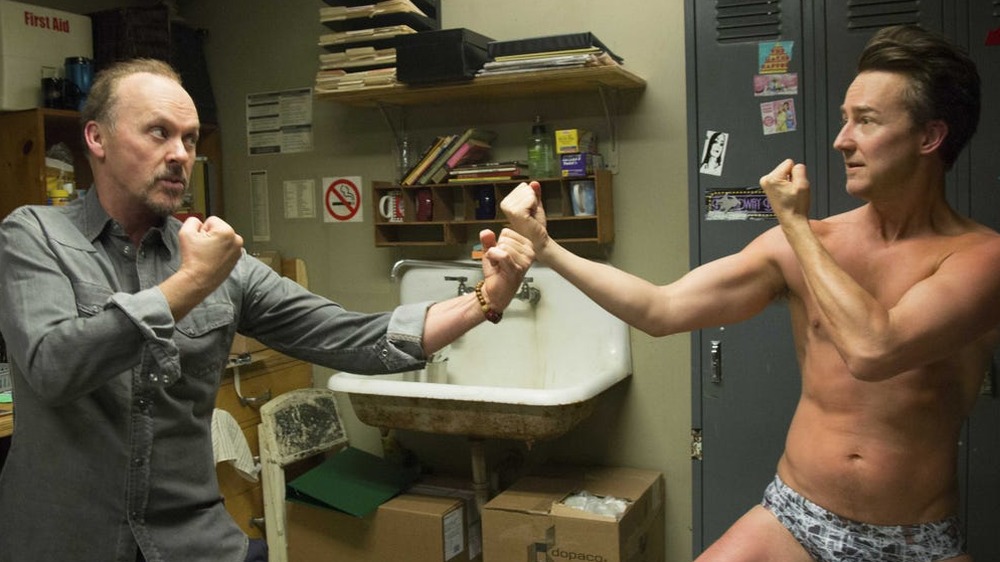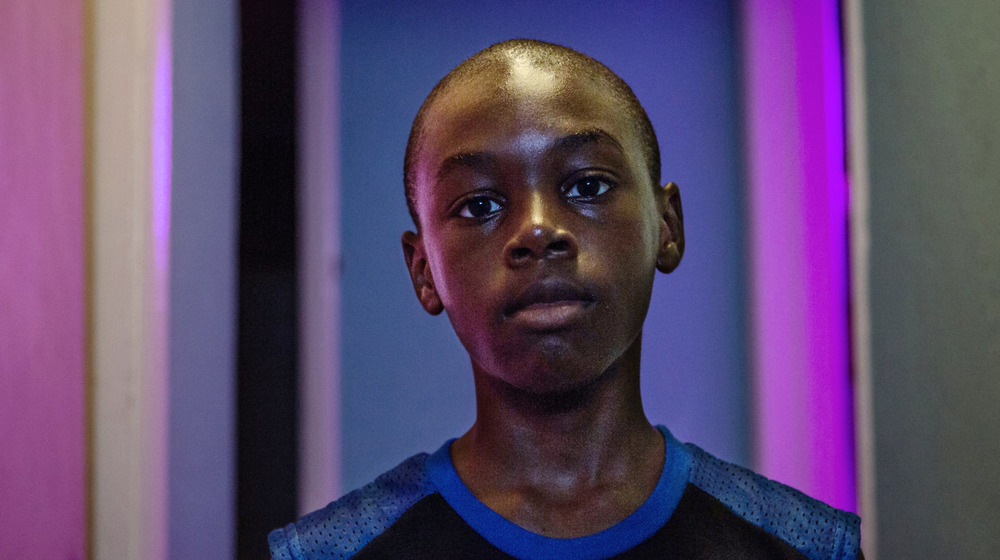Highest- To Lowest-Grossing Best Picture Winners Of The 2010s
It can be easy to think of financially successful movies and critically successful movies as two different entities. After all, how many times have we exited the latest summer blockbuster and said, "Well, it's no Oscar winner." Plus, there are plenty of award-winning films that prove this rule. The Hurt Locker, Crash, and The Last Emperor all won Best Picture at the Oscars, but none of them exactly lit the box office on fire.
But despite this perception, there's more overlap across box office hits and awards season darlings than you might expect. A large number of box office juggernauts can be found among the small crop of films that have won Best Picture at the Oscars. For proof, look no further than victors like Titanic and The Lord of the Rings: The Return of the King, both of which became two of the highest-grossing movies of all time.
None of the Best Picture winners in the 2010s quite reached Titanic-levels of financial glory. However, many of them achieved some level of box office success, with a number of them proving to be flat-out hits that endured for months on end. On the flip side, others definitely earned more gold at the Oscars than at the box office. So today, we're looking at the Best Picture winners of the 2010s to see which ones drummed up impressive numbers at the domestic box office and which ones failed to attract audiences.
With $138.7 million, The King's Speech was the highest-grossing Best Picture winner of the 2010s
In the decade since it won Best Picture, The King's Speech's reputation has largely been defined by the movies it beat out at the 83rd Academy Awards, particularly The Social Network. Though this has cultivated a negative aura for The King's Speech in certain circles, general moviegoers went wild for the film in its initial theatrical release. Debuting in November 2010, this biopic drama took off like a rocket in its limited release debut over Thanksgiving 2010. It subsequently delivered equally impressive box office results in its wide-release premiere over Christmas 2010.
The King's Speech profited greatly from a shrewdly calculated release date. Not only did it get to benefit from two extended holiday weekends, but its wide-release expansion came hot off the news that The King's Speech scored the most nominations for any movie at that year's Golden Globes ceremony. Combine all of that with an accessible underdog story, and The King's Speech had all the ingredients for a hit movie. Even considering the advantages it had, The King's Speech had a truly impressive box office run that entailed it scoring over $6 million for each of the first nine weekends of 2011. Eventually, The King's Speech scored $135 million domestically and an additional $3.7 million from a PG-13 version briefly released to theaters in April 2011. Its Best Picture victory may still be controversial, but there's no doubt audiences fell for The King's Speech.
Argo thrilled audiences and picked up $136 million
Argo holds the distinction of being the only Best Picture winner of the 2010s to debut in wide release. Whereas the other Best Picture winners of this decade started off slowly in limited releases, Argo premiered in 3,232 locations in October 2012. Opening to $19.4 million, Argo actually opened beneath the opening weekend of Ben Affleck's previous directorial effort, The Town. However, Argo proved to have legs at the box office. The thriller managed to dip only 15% in its second weekend thanks to great word-of-mouth from audiences, who gave the picture an A+ CinemaScore.
Argo's box office stamina endured well into the following year when it scored seven Oscar nominations. After those nominations, Argo leaped up 80% from the previous weekends gross to take in another $2.2 million in its fifteenth weekend of release. In the month that followed, Argo just kept on chugging, consistently delivering $1.8+ million weekend grosses. This was in spite of how Argo had been playing in theaters for five months and had dropped on home video in the middle of February 2013. The only drawback to this steady moviegoing was that Argo only scored a 15% increase in its box office after winning Best Picture. Given that it had grossed $129.6 million before it ever took home that statue, it's likely everyone who wanted to see Argo already had by that point. That's the only complaint one could have, though, of Argo's $136 million domestic run.
Green Book drove to $85 million at the domestic box office
For a moment, it looked like Green Book was in real financial trouble. After opening to $320,429 from 25 locations on its opening weekend in November 2018, outlets like Deadline considered the opening to be underwhelming. Its wide-release expansion the following weekend yielded $5.5 million, a total dubbed by The Hollywood Reporter as "disappointing". Over Thanksgiving 2018, adult audiences were turning out for Bohemian Rhapsody and Widows rather than Green Book.
However, a glimmer of hope could be found in the fact that Green Book did score an A+ CinemaScore rating from audiences. That word-of-mouth began to work its magic by its second weekend of wide release. While every other holdover title dropped 41+% form the previous weekend, Green Book dipped just 28%. From there, Green Book kept on chugging at the box office. Its financial longevity was reflected in its post-scar nominations bump. Three days after those nominations were released, Green Book grossed $5.4 million, almost equivalent to its wide-release opening from two months prior. Green Book continued to hold on well throughout the following month, and it even got one last financial boost after its Best Picture win.
It may have started out as a "disappointment", but the domestic box office run of Green Book, which eventually amassed $85 million, turned out to be a lucrative ride.
The Shape of Water won Best Picture and swam all the way to $63.8 million
Some eventual Best Picture winners, like The King's Speech and Green Book, have stories seemingly hand-crafted for mainstream acceptance. And then there's The Shape of Water. A drama about Sally Hawkins as a mute janitor who falls in love with a fish-monster, Guillermo del Toro's 2017 feature was anything but a sure-fire box office hit. But The Shape of Water managed to connect with moviegoers in its theatrical run, which kicked off in December 2017.
The Shape of Water's box office fortunes already seemed promising when it grossed $1.1 million from just 41 locations in its second weekend of release. From there, Shape of Water delivered solid numbers when it expanded into wide release over Christmas 2017, while it experienced its biggest single-weekend gross, $5.9 million, in the wake of its Oscar nominations.
Much like The King's Speech, Shape of Water profited from its theatrical expansion occurring throughout December, when it could benefit from prestigious nominations from award ceremonies like the Golden Globes. The impact Shape of Water's award fortunes had on its box office was reinforced in the wake of its Best Picture win at the Oscars. Grossing another $2.3 million, Shape of Water increased 58% from its gross the previous weekend. In the end, The Shape of Water, despite its unusual premise, managed to earn an impressive $63.8 million domestically, making it the sixth-biggest movie ever for Fox Searchlight Pictures.
12 Years a Slave proved Hollywood wrong with $56.7 million
In a February 2014 interview for NME, director Steve McQueen recalled that he was once told that his movie, 12 Years a Slave, was guaranteed to not make money for the simple reason that it had Black leads. The eventual box office run of 12 Years a Slave ended up proving that studio executive exceedingly wrong. The film got its domestic box office run kicked off by opening to $923,715 from just 19 theaters, which is pretty impressive. In the weeks that followed, 12 Years a Slave managed to crack $33.1 million domestically by the time Thanksgiving 2013 arrived. The film proved to be the perfect adult-skewing counterprogramming against family-friendly titles like Frozen and The Hunger Games: Catching Fire that dominated the November 2013 box office.
McQueen's film continued its box office run well into 2014, including after it won Best Picture at the start of March 2014. Shortly after that accomplishment, Variety reported that 12 Years a Slave was headed back to over 1,000 theaters. This final re-release gave 12 Years a Slave an additional $2.1 million. Continuing to play for eight more weeks after that, 12 Years a Slave closed out its domestic run with $56.7 million, nearly triple its $20 million budget. Though McQueen was constantly told 12 Years a Slave had no chance of being a lucrative project, it ended up becoming just that, defying toxic industry standards in the process.
Parasite set some serious records and grossed $53.4 million
In May 2019, Parasite won the Palme d'Or at the Cannes Film Festival. This was the first time in history a South Korean film had scored this award. This victory set the tone for how Parasite would spend the next year breaking all the rules for what a South Korean film could accomplish on the world stage. This trend extended to its performance at the domestic box office, which saw Parasite far exceeding expectations on a number of levels.
For one thing, the $53.4 million domestic haul of Parasite was far bigger than usual for a foreign-language title at the domestic box office. Only three foreign-language films (Hero, Life Is Beautiful, and Crouching Tiger, Hidden Dragon) made more money than Parasite domestically, and two of those got play in more locations than Parasite ever did. For another, it was by far the biggest hit indie studio Neon had ever seen. Prior to Parasite, the outfit's biggest movie was I, Tonya, which grossed $30 million, while only two of their films had ever cracked $10 million. Finally, Parasite blew the domestic box office grosses for prior Bong Joon-ho movies out of the water. The director's previous domestic box office high was the $4.5 million gross of Snowpiercer, which Parasite easily exceeded.
Parasite managed to accomplish all of that and also managed to make further history by becoming the first foreign-language film ever to win Best Picture at the Academy Awards. Whether it was scoring wins at award ceremonies or shattering box office conventions, Parasite effortlessly changed the game.
Spotlight surprised us with its Best Picture win and its $45.1 million
Much like 12 Years a Slave, Spotlight was a movie covering a grim but essential subject matter that seemed like it could alienate rather than attract moviegoers. In the case of Spotlight, it was a journalism thriller about the Boston Globe reporters who investigated local cases of child abuse at the hands of Catholic priests. An even bigger issue the movie faced was that it hailed from Open Road Films, a distributor not known for delivering box office hits.
However, against those odds, Spotlight turned out to be a box office hit. Opening to $295,009 in the first weekend of November 2015, it eventually went into wide release over Thanksgiving, grossing $4.4 million for a $12.2 million domestic haul. Spotlight continued to hold nicely for the rest of 2015, and it'd grossed $25.9 million by the time the year was done. Its fortunes continued to improve in the New Year in the wake of its Oscar nominations, which coincided with a three-day weekend, leading to a big box office boost for Spotlight.
The halo effect that the Oscars had on Spotlight's box office was further seen when it managed to score an additional $1.7 million after winning Best Picture. With a $45.1 million domestic total, Spotlight not only managed to become a hit in its own right, it was also the twelfth biggest movie ever in Box Office Mojo's "news/broadcasting" genre, beating out prominent titles like Nightcrawler and The Insider.
The Artist silently danced its way to $44.7 million
The Artist was a slow and steady performer at the domestic box office. Despite grossing strong figures in its first few weekends of limited release, The Artist never played in more than 172 theaters in its first seven weeks. Given that it was a silent, black-and-white film with no big-name American actors, this was the right approach. Perhaps the biggest reflection of this gradual technique was how The Artist didn't even go into wide release (which is when a movie plays in 600+ theaters) until after the nominations for the 84th Academy Awards were announced. Pre-nominations, The Artist had grossed a respectable $9.2 million domestically. Though it wasn't a box office titan even after it amassed ten Oscar nods, it still managed to bring its domestic box office haul to $31.7 million by the time Oscar Sunday rolled around.
After The Artist became the first silent film in over 80 years to score a Best Picture Oscar, the film expanded into 1,756 locations and grossed $3.62 million. That was the biggest single-weekend gross ever for The Artist, despite this being its fifteenth weekend of release. After that weekend, The Artist continued to play in domestic movie theaters for three more months before it took a bow with a final domestic total of $44.7 million. To date, that makes it the biggest film in history (that isn't an IMAX documentary) to never crack the top ten at the domestic box office.
Birdman soared high at the Oscars and earned $42.3 million
Prior to 2014's Birdman or (The Unexpected Virtue of Ignorance), Alejandro Gonzalez Inarritu was known for many things, including highly acclaimed works of cinema. However, one thing he wasn't known for was making movies that generated much in the way of box office. Given the avant-garde and bleak nature of Inarritu's works, this isn't exactly a shocking development. Per The Numbers, while his 2006 film Babel did manage to hit $34.3 million domestically, none of his other three movies could clear $17 million.
Buoyed by an avalanche of positive reviews and award season buzz, Birdman did noticeably better than prior Inarritu titles at the domestic box office. After scoring one of the best limited release openings of 2014, Birdman continued to draw sizeable crowds throughout the final two months of the year. Once 2015 rolled around, its business only further flourished in the wake of its nine Oscar nominations.
The only negative note on Birdman's box office run is that it had one of the weakest modern-day post-Best Picture bumps. In the wake of its prestigious win, Birdman grossed only another $1.9 million. Of course, by that point, Birdman was already plenty lucrative with a $40.2 million domestic gross. An additional $2.1 million in its remaining six weeks of release would bring it to a lifetime gross of $42.3 million, more than enough to make it Inarritu's biggest movie ever at the domestic box office.
With $27.8 million, Moonlight was the lowest-grossing Best Picture winner of the 2010s
While Moonlight is the lowest-grossing Best Picture winner of the 2010s, this is by no means an indicator that Barry Jenkins' film was a "flop." In fact, it's merely a reflection that Moonlight was a much smaller production compared to the other Best Picture winners of this or any other decade. Just compare Moonlight to Birdman. Despite its offbeat premise, Birdman managed to score a budget of $18 million, a star-studded cast, and a release by Fox Searchlight. Moonlight, meanwhile, had a budget of just $4 million, with no big names in its cast, and it hailed from A24, a studio that, prior to Moonlight, had never released a movie that cleared $26 million domestically. Under these circumstances, Moonlight didn't need to be massive to be a profitable hit.
Keeping all that in mind, Moonlight's box office run becomes quite impressive. That run kicked off in October 2016 and kept on chugging through Thanksgiving, when it cleared the $8.5 million mark domestically. The film was revived at the domestic box office in the wake of its Oscar nominations, which led to it playing in 1,000+ locations for the first time. Moonlight got another box office boost after its Best Picture victory, grossing another $2.3 million over four months after it first premiered in theaters. Eventually, Moonlight grossed $27.8 million domestically, making it A24's biggest movie ever for a time. It may be the lowest-grossing Best Picture winner of the decade, but Moonlight was still an unquestionable box office hit.
